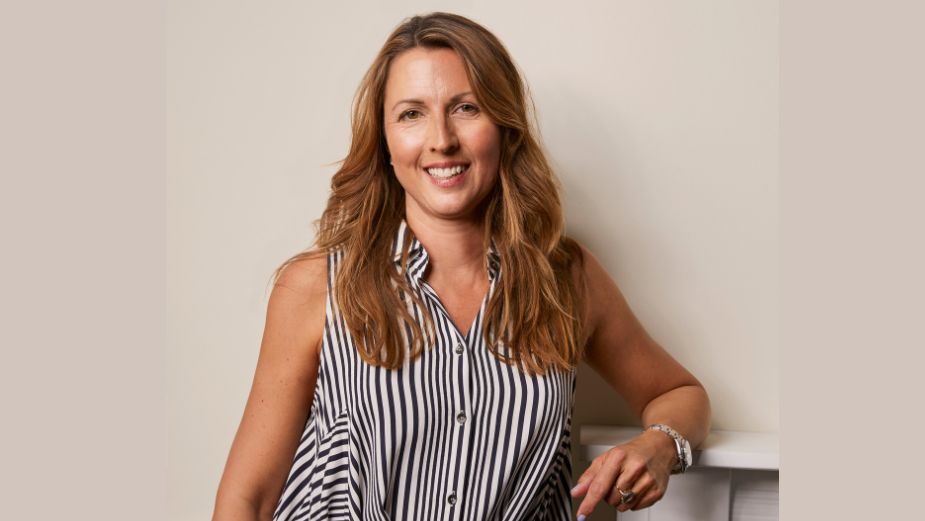
Penny Verbe on Why Data, Tech, and Humanity Are Essential to Great Production

The nature of production as the industry knows it is changing at lightning speed, ushered in by challenges around sustainability, diversity, budgets, and the drive for more content at scale. To discuss all this and more, Remote Filming - the leading remote streaming service technology - is asking the industry’s promiment production experts about their best practices and the way they’re utilising technology to help overcome the challenges at hand in a brand new series for LBB.
Anthony Barry, co-founder of Remote Filming says: “We’re all seeing the industry change and evolve before our very eyes. I believe that when it comes to tackling the myriad of production issues, especially sustainability, technology is key. Bringing together the right people and the right technology is how we can make a real difference to production.”
Our first interviewee in the series is Penny Verbe, managing director of Accenture Song Production Studios EMEA. Penny has close to three decades of experience in the industry including co-founding the post-production company, Smoke & Mirrors. The studio Penny went on to run after - CreativeDrive EMEA - was acquired by Accenture in 2020 and last year David Droga united all the creative agencies and production entities under one banner: Song.
Penny says that she approaches production “with the attentiveness of a creative boutique, the expertise, speed and responsiveness of a production house, and the forward-thinking agility of a technology business.” The technology is, of course, vital and Accenture Song has pledged to invest $3 billion into AI in a move that will be transformative for businesses worldwide.
Today, LBB spoke to Penny about helping clients to transform their production processes for the future, the essential role of data and technology in making this happen, and not forgetting that investment in people must always come first.
LBB> Penny, what attracted you to production? How did you get your start in the industry?
Penny> Credit is due to Flash Gordon, the original ‘80s classic film. I remember watching it as a child and wondering how on earth they did it. My first start in the industry was as a receptionist at 18 years old in a film and video editing company in Manchester, just up the road from Granada TV studios. I’d applied for a few entry level jobs via newspaper ads (remember those?) in The Guardian media section. The post-production company job paid £500 more a year than the others which helped seal the deal. It was essential as I needed to be able to afford to eat and go to the Haçienda (iconic northern nightclub for those who haven’t heard of it).
LBB> You co-founded Smoke & Mirrors. How has your post-production expertise helped with what you do today?
Penny> Post-production back in the early '90s was run by mavericks and charlatans; half the tech didn’t work properly, and we were at the bottom of the food chain. It was a brilliant place to learn how to get stuff done on a budget, in a hurry, by any means necessary. Necessity being the mother of invention and all that. So, I soon learnt to be decisive, quick-witted and incredibly determined. Production and post houses were constantly going bust, and I saw how not to run a company from my first bosses. Those work ethics and life lessons still apply today, however now I’m thankful I get to be in a business surrounded by some of the brightest and best people in the industry.
LBB> And how did you start with Accenture Song Production Studios specifically?
Penny> Via the studio I was running for CreativeDrive EMEA, a content production agency acquired by Accenture in 2020, with over 100 global studios. We became part of a larger creative team last year when David Droga brought together all the creative agencies and production entities under one banner, as Accenture Song.
LBB> What’s your, and Accenture Song’s, approach to production? How do you approach the idea of craft?
Penny> With the attentiveness of a creative boutique, the expertise, speed and responsiveness of a production house, and the forward-thinking agility of a technology business. Accenture has committed to investing $3 billion in AI which is the next level game changer for every business on the planet. We are the largest tech-powered creative group in the world, so the desire and drive to continuously evolve and reinvent is in our DNA.
Our core difference is our ability to deliver for our clients’ needs today while helping them transform their production approaches and solutions for the future. In turn, driving long term value and efficiency. This is all underpinned by a passion and proven ability to deliver beautifully crafted creative work.
LBB> What kind of role does data play? Do you think Accenture Song Production Studios utilise data in a particularly interesting or innovative way?
Penny> As we all know, data is everything. But to know what to do with it and how it can benefit our clients, you need some seriously clever people, which is what we have here in abundance. So, we are combining best in-class creativity with Accenture’s deep industry intelligence of technology and data, to help us unlock new, future facing production models. This empowers our clients to produce greater content with real relevance when communicating to their customers at pace across traditional, new, and emerging channels.
LBB>Which industry trends do you find affect production most, i.e., sustainability, diversity, demand for high volume of content, etc. How are you addressing these?
Penny> The simple answer is that everything affects production, as it should, its very nature is that of constant change and diversity on every level. Song sits at the cross section of technology and creativity which means we can approach every situation uniquely with whatever solution is required. Production has always been by design extremely sensitive and reactive to the environment and global influences. When the covid-19 pandemic began, we adapted, switching to remote shooting, on-set specialists and daily testing. Our in-house studios continued to shoot every day of the week, every week of the year. Virtual production has meant we can address our carbon footprint sustainably. We can shoot in every country in the world without having to fly there which changes the parameters of what can be done. We literally don’t stop. We are extreme problem solvers at heart.
LBB> What role does technology play, like remote streaming for example, in helping to address the trends shaping production? And does your approach differ at all between short form/commercials and long form content?
Penny> Technology is a tool like any other we use.
With our partnership with Adobe for example, we used it in-house first to see how it could turbo charge our marketing transformation team. Getting the people and process right is every bit as important as the tech, it’s a mesh of the two that truly elevates everything. Each project is different and brings its own set of challenges; the pandemic accelerated the ability for people to accept working remotely and I don’t think our industry would have embraced it so quickly had it not happened. Humans are creatures of habit, and we don’t like change and outside global events often set the tone now, so we react accordingly in production. I don’t think it’s a matter of short or long form – a project is a project no matter the length. We approach everything as if it's a new puzzle to be solved each time.
LBB> What kind of role do production partners play for you in addressing production’s challenges?
Penny> A massive role. I think it’s incredibly important to work with different partners and specialists – as that’s where the alchemy happens. We can’t all be experts in everything so diversity in who you work with is hugely enriching for everyone. We need the new to make us question the existing paradigms and it pushes us all to be better.
LBB> Which of the productions that you’ve worked on are you most proud of and why?
Penny> That’s like asking me which one of my cats I prefer. That answer being, it depends on which one is being nicer to me. Most recently, the project that made me smile is for a client who thought they never had the time, budget, or ability to insure against the many pitfalls of shooting on top of a mountain in the Alps. We produced a film with a woman walking up a mountain, whilst it was snowing, wearing their clothes. When I showed them the behind the scenes of the virtual production studio in Acton, they nearly fell off their chair.
LBB> What is one example of a recent project that required the production department to solve a particularly tricky / interesting problem(s)? How did production step up to find and execute the solution?
Penny> One shoot last year became a drama of near biblical proportions. An act of God situation where the country we were shooting had their first flash flood in 50 years. The lighting trucks were washed out to sea, the producer broke his ankle, pretty much anything that could go wrong did. On this type of job, the production team came into their own. Deftly managing clients, a huge on-set cast/crew and insurance to minimise costs and work through a solution which still produced an outstanding piece of work.
LBB> Broadly speaking, where should companies be investing in the production process in order to drive the best value and output?
Penny> For me, I think this is always the same answer. Invest in people first. Then the technology.
LBB> What’s the key to crafting content that really connects with people?
Penny> Remembering the humanity behind what you are trying to say or convey. It’s about connecting with people on an emotional level, with honesty and humility. A good dose of humour doesn’t harm either.















